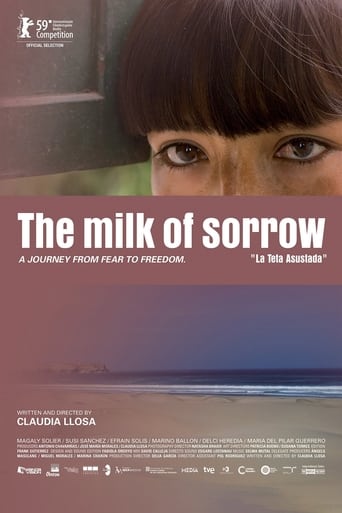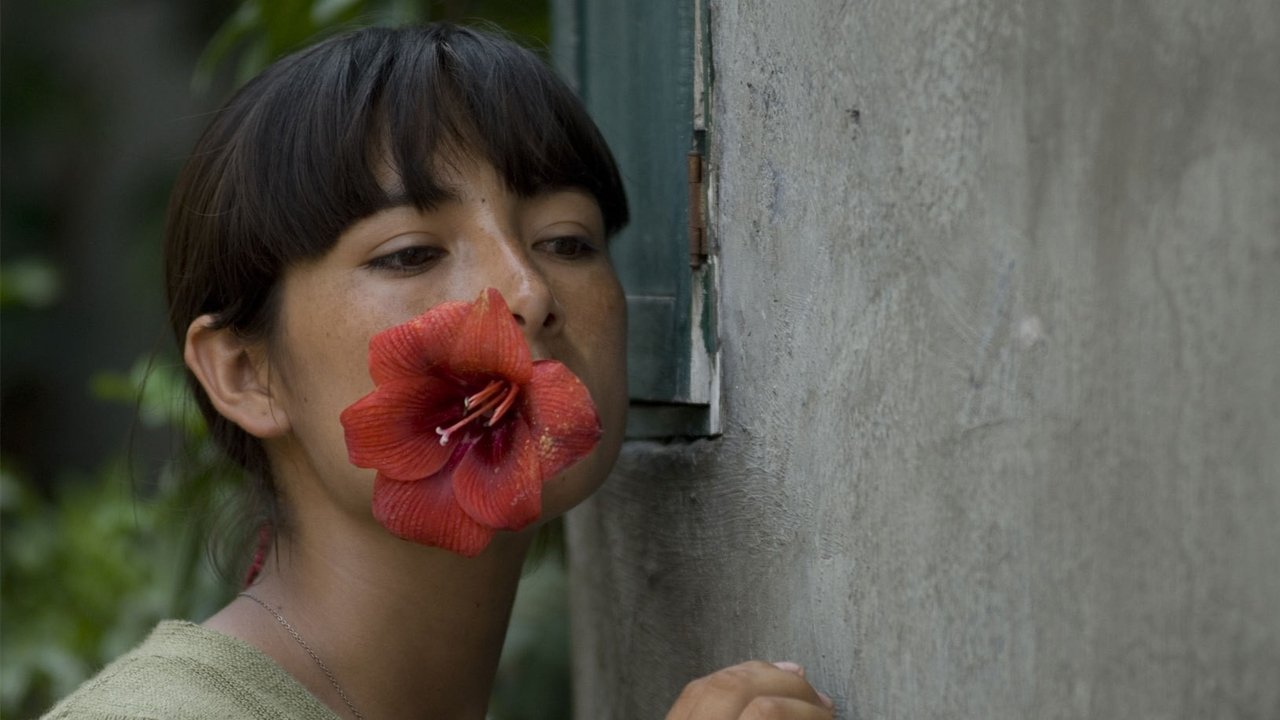alexrene-80054
The film begins with a horrifying story of rape and violence told through the song of an elderly woman who lays dying on her bed. She describes her horrific experiences during the years of the conflict in Peru between Sendero Luminoso, a left wing guerrilla group, and the Peruvian government. Though she has lost much in the conflict, including her husband whose emasculation and murder she describes in her song, she has left behind a daughter, Fausta, who becomes our protagonist. Fausta and her family do not have money to bury her mother or return her body to their village, so Fausta accepts work in the home of a wealthy white pianist. Fausta and her family are indigenous, and live in poverty in Lima, Peru where wealth, class, and race are all still intertwined. Fausta shares her mothers penchant for composing songs and her boss, who is struggling to complete a piece by her recital date, encourages Fausta to sing for her. When Fausta finishes her song, the boss performs it to a standing ovation in a packed theater. When tries to have her work acknowledged she is left abandoned on the dark streets of Lima, a terrifying fate for Fausta who has a crippling fear of men and is afraid of being assaulted like her mother was.What Claudia Llosa has done perfectly here is capture the undertones of race, sex, and class that define so much of most modern societies. Fausta fears rape and this fear is especially valid given that she is an indigenous woman. If Fausta were not both indigenous and a woman, the threat of rape or any other form of violation would not be so understandable. Native people in Peru are often limited by a governmental/societal system that not only devalues them, but actively targeted them in the recent past. Though Fausta's fears stem from the past treatment of indigenous woman in Peru, her boss's duplicity is a product of a modern social structure that has not changed too drastically from previous decades. This is the context that makes her boss's strong reaction to her quiet comments so powerful. How dare Fausta, a poor indigenous woman, try to take any credit for her own work? Fausta attacked Peru's system of societal system by simply acknowledging it, when quiet acceptance of the creative theft was the expectation. In La Teta Asustada, Llosa displays the two extremes of oppression. The first being violence, and the latter silence.
leslieaddleman
After seeing the movie "The Milk of Sorrow" by Peruvian filmmaker Claudia Llosa. I have the opinion that it is a story of fear provoked by popular beliefs in Peru, because some women in the Shining Path Era, a Guerrilla group of the eighties that it emerged in Peru, they were raped and mistreated and had children marked by this fear. Fausta is a young woman marked and judged by society since she is the daughter of a rape and her mother was responsible for transmitting this fear with popular beliefs such as the frightened tit, "milk of sorrow", which is transmitted by mothers to their mothers. babies. You can also clearly see the social racism in this movie. After the death of Fausta's mother, she needs to get money to be able to bury her mother in her homeland, that's when she gets a job in a house of high social class where the owner takes advantage of her shyness and lack of education by stealing a song that uses it as theirs. Fausta confronts her fears in that house and confronts them when she meets the gardener of the house, speaks with her own language that is Quechua, she feels very good with him. Fausta's strength is imposed on the pain and fear in which he lived in that society, he manages to remove the potato he had in his body, which caused him discomfort. She manages to bury her mother but first she goes through the sea that signals the new life that awaits her later, a hope of a new life for Fausta, without fears, without pain. The film also shows violence against women that leaves them soulless and very afraid.
valis1949
THE MILK OF SORROW (dir. Claudia Llosa) The central conceit or literary metaphor of this mesmerizing film is that mothers who have experienced the horror of rape pass along this trauma to their daughters through breast feeding. Fausta is a Peruvian peasant who has been deeply affected by this abnormal syndrome, and when her mother dies, the film documents Fausta's journey to bury her mother, and then confront and heal the psychological damage done to her by her mother's tragic past. The film has the tone of a hypnotic yet horrifying folk tale that explores the pagan or atavistic undercurrents within lower-class Peruvian society. Nominated for numerous international awards. MUST SEE.
querkus7
I have only to say, that I understand the people they say this film could be boring and slow, and, and, and.BUT, the only thing that the don't know, is the fact that, IF YOUR NOT RELATED WITH QUECHUA Language & THE INDIGUENOUS CULTURE OF PERÚ & SOUTHAMERICA, just LEAVE THIS FILM and please, DON'T GIVE A NEGATIVE REVIEW of a thing you just don't feel and understand.Cause all you don't really know, how sweet and beautiful sounds the Southern-Quechua Language, and how underrated it is in films, and the indigenous culture there too.I think, actually it is the first time, I heard the language in a movie, and the first time I heard it in a song at all. And because I come from Chile, this bring me ties to my roots and original culture, because I really didn't knew, how rich and beautiful it is. Brings me really goose bumps.So, please have a little respect, and If you don't feel it, just leave it, and be neutral. Al least, why do we have to understand or feel every movie in the world?


 AD
AD

